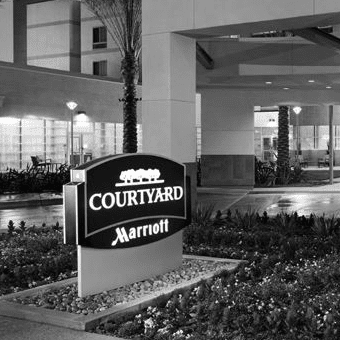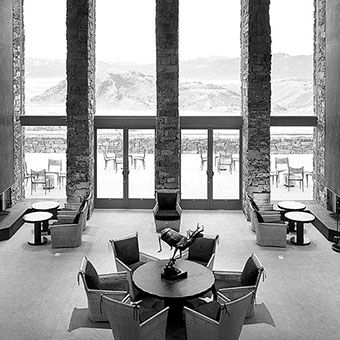It’s not so much that the traditional hospitality fairway for institutional equity transactions is so slow for being clogged with players. It’s just that there doesn’t seem to be a clear path forward.
A number of factors can be used to explain the reduced activity, with all of them starting and ending with the continued state of higher interest rates and cost of capital. For many owners, their current loan is their best loan right now. If owners don’t need to refinance, they won’t. At the same time, even though rising interest rates and cap rates lead to depressed valuations overall, in many instances, we are still witnessing a continued disconnect between seller and buyer expectations. Ironically, this is occurring in large part because the industry as a whole is still performing well, enticing owners to stay the course in anticipation of lower interest rates—sooner rather than later.
In particular, transactions have slowed for those urban in-fill or suburban interstate hotel properties that have been bread-and-butter investments for institutional equity. The response from institutional equity hasn’t been to dismiss investment in hospitality, but instead to look at other asset classes or niches in a new light. In fact, whereas hotels have traditionally been seen as a high-risk, high-reward commercial real estate property class, the current situation in sectors like office, industrial or even multifamily housing have moved the needle in the opposite direction. With people traveling again, hospitality can be seen as an excellent hedge against inflation, especially with the ability to move rates (re-lease a “tenant” space) on a daily basis.
Go your own way
With mid-market transactions at a low point right now, we are witnessing an interesting bifurcation of investment. On one hand, institutional equity had already made investments in areas like self storage, cold storage and manufactured housing, but the contrarian stakes were raised with a foray into more affordable segments like extended stay.
One breakthrough: the 2021 acquisition of Extended Stay America (approximately 650 hotels) by Blackstone and Starwood Capital Group for $6 billion, a neat and hefty sum. A year later, the two companies ponied up another $1.5 billion for 111 WoodSpring Suites locations. Sonesta International Hotels Corp. is another big player with prominent economy segment diversification. More recently, Noble Investment Group acquired 10 WoodSpring Suites properties. Overall, Noble has acquired nearly 50 extended-stay properties in the last two years.
Even Hilton with Project H3, Marriott with StudioRes and Hyatt with Hyatt Studios are expanding in this space with new brands. Last year, Red Roof at the economy end of the spectrum also got into the act with its HomeTowne Studios product. This product proliferation is a sure sign of a maturing asset class. Moreover, the brands in their pitches to owners and developers are emphasizing lower cost to build at a time when construction costs remain high, as well as efficient service platforms that require less full-time equivalent staff than other asset classes. The lure: a streamlined approach that promises a faster path to asset stabilization, greater yield on cost and quicker return on investment.
These trends should continue as occupancies remain strong in this asset class, especially with prolonged inflation keeping many individuals out of the traditional multifamily market due to ever-increasing rents. As a result, extended-stay properties are functioning as quasi-multifamily housing, in addition to its more traditional role as lodging for workers on temporary assignments to a locale. Should the economy soften, this asset class should further be relatively recession-resistant.
Beyond mom and pop
At the other end of the asset-class spectrum, institutional equity continues to invest in creative entrepreneurs who are developing exciting lifestyle lodging concepts. Once again, our pandemic experiences, as people rethought how they travel and spend time together, have been pointing investors in new directions.
As a result, old-fashioned travel and vacation modes are being looked at in new ways. Independent mom-and-pop campgrounds and RV parks are sharing elbow room with more upscale outdoor lodging platforms. At the higher end, they embrace the concept, as an operator like Collective Retreats describes it, of “bringing all the comfort and amenities of a 5-Star luxury hotel to iconic outdoor destinations.” The property search is full on. Many rural and scenic locations that earned scant attention in the past are being looked upon for more upscale uses.
While some outdoor lodging platforms do throw on the trimmings in the way of fine dining venues, an activities center or pools, there are other approaches, like the aforementioned select-service properties, with less startup investment and leaner staffing. With the continued appeal of drive-to leisure travel and multiple, shorter family vacations during the year, these newer formats may in their own way also be recession-resistant.
In today’s uncertain transaction marketplace, we expect these trends to continue as a valuable form of asset diversification by large institutional players. As we are seeing, when those fairway deals are no longer available, it might just lead investors to finding a diamond in the rough.
Matthew Dower is managing director for RobertDouglas, working from the company’s new Chicago office.





